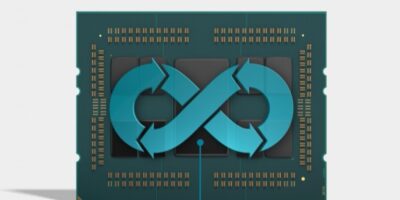AMD claims world record performance for 2nd Gen EPYC processors
Claimed to set new standards for data centres, the AMD EPYC 7002 series processors provide twice the performance compared to the previous generation and deliver an estimated 25 to 50 per cent lower total cost of ownership (TCO) than competitive offerings.
Designed for enterprise, cloud and high performance computing (HPC) workloads, the AMD EPYC processors feature up to 64 Zen 2 cores in 7nm process technology Google has announced it has deployed 2 nd Gen AMD EPYC processors in its internal infrastructure production data centre environment and later this year will support new general-purpose machines powered by 2 nd Gen AMD EPYC processors on Google Cloud Compute Engine.
Twitter has also announced it will deploy the processors across its data centre infrastructure later this year, reducing TCO by 25 per cent. Microsoft’s Azure virtual machines for general purpose applications, as well as preview signup for cloud-based remote desktops and HPC workloads are based on 2nd Gen AMD EPYC processors and HPE plans to introduce a range of 2nd Gen AMD EPYC processor-based systems, including the HPE ProLiant DL385 and HPE ProLiant DL325 servers, while Cray’s Air Force Weather Agency will be using a Cray Shasta system with 2 nd Gen AMD EPYC processors providing terrestrial and space weather information to the US Air Force and Army.
The 2 nd Gen AMD EPYC processors are specifically designed for modern data centre workloads, explains AMD, with up to 83 per cent improved Java application performance for enterprise servers and a world record performance on real time analytics with Hadoop, claims AMD.
There is another world record claim for cloud and virtualisation workloads, with floating point performance and the most DRAM and I/O bandwidth in its class to supercharge HPC workloads. This includes up to a two-fold improvement in performance in computational fluid dynamics and up to 72 per cent higher performance structural analysis.
For security, there is Secure Memory Encryption and Secure Encrypted Virtualisation.




